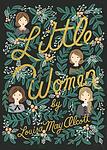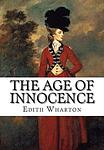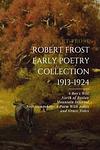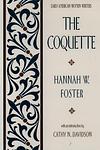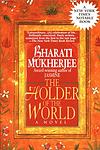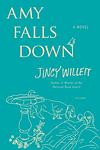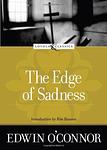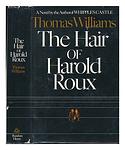The Greatest "New England" Books of All Time
Click to learn how this list is calculated.
This list represents a comprehensive and trusted collection of the greatest books. Developed through a specialized algorithm, it brings together 284 'best of' book lists to form a definitive guide to the world's most acclaimed books. For those interested in how these books are chosen, additional details can be found on the rankings page.
Genres
The "New England" category for books typically refers to literature that is set in or inspired by the six northeastern states of the United States: Maine, Vermont, New Hampshire, Massachusetts, Rhode Island, and Connecticut. These books often explore the unique culture, history, and landscapes of the region, and may feature themes such as small-town life, colonial history, and the natural beauty of the area. The genre may include fiction, non-fiction, and poetry, and can range from classic works by authors such as Nathaniel Hawthorne and Henry David Thoreau to contemporary novels and memoirs.
Countries
Date Range
Reading Statistics
Click the button below to see how many of these books you've read!
Download
If you're interested in downloading this list as a CSV file for use in a spreadsheet application, you can easily do so by clicking the button below. Please note that to ensure a manageable file size and faster download, the CSV will include details for only the first 500 books.
Download-
1. The Catcher in the Rye by J. D. Salinger
The novel follows the story of a teenager named Holden Caulfield, who has just been expelled from his prep school. The narrative unfolds over the course of three days, during which Holden experiences various forms of alienation and his mental state continues to unravel. He criticizes the adult world as "phony" and struggles with his own transition into adulthood. The book is a profound exploration of teenage rebellion, alienation, and the loss of innocence.
-
2. The Scarlet Letter by Nathaniel Hawthorne
Set in 17th-century Puritan Boston, this novel tells the story of a woman who conceives a daughter through an affair and struggles to create a new life of repentance and dignity. She is forced to wear a scarlet "A" on her dress as a sign of her adultery while her lover, a revered local minister, remains unnamed and unpunished. Throughout the book, themes of sin, legalism, and guilt are explored.
-
3. Little Women by Louisa May Alcott
This classic novel follows the lives of the four March sisters - Meg, Jo, Beth, and Amy - as they navigate the challenges and joys of adolescence and adulthood in 19th century New England. As they grow, they grapple with issues of poverty, gender roles, love, and personal identity, each in her own unique way. The story is a testament to the power of family, sisterhood, and female resilience in a time of societal constraints.
-
4. The Handmaid's Tale by Margaret Atwood
Set in a dystopian future, this novel presents a society where women are stripped of their rights and are classified into various roles based on their fertility and societal status. The protagonist is a handmaid, a class of women used solely for their reproductive capabilities by the ruling class. The story is a chilling exploration of the extreme end of misogyny, where women are reduced to their biological functions, and a critique of religious fundamentalism.
-
5. The Age of Innocence by Edith Wharton
Set in the 1870s, the novel revolves around Newland Archer, a young lawyer from New York's high society, who is engaged to the beautiful and conventional May Welland. His life takes a turn when he meets May's cousin, the Countess Ellen Olenska, who has returned from Europe after leaving her scandalous husband. Torn between his duty and passion, Archer struggles with the constraints of the society he is a part of. The book offers a vivid portrayal of the struggle between individual desires and societal expectations in the upper-class New York society of the late 19th century.
-
6. The Poems of Robert Frost by Robert Frost
This collection of poetry showcases the work of a renowned American poet, featuring his signature exploration of rural life, complex social and philosophical themes, and vividly depicted New England landscapes. The anthology includes some of his most famous poems, marked by a mastery of language, precise imagery, and a keen ear for the sound of spoken word. His poems often touch on the beauty of nature, the human condition, and the dichotomy between life and death, demonstrating his profound understanding of the human experience.
-
7. The Haunting of Hill House by Shirley Jackson
The book is a chilling tale that revolves around a group of four individuals who decide to stay in a notoriously haunted mansion to conduct a paranormal investigation. The main character, a shy, reclusive woman with a troubled past, becomes increasingly unstable as she experiences terrifying phenomena and becomes obsessed with the house. As the supernatural events escalate, the lines between reality and imagination blur, leading to a shocking and tragic conclusion.
-
8. Ethan Frome by Edith Wharton
Set in a bleak New England landscape, the book tells the story of Ethan Frome, a poor, hardworking farmer who is married to a sickly, bitter woman named Zeena. When Zeena's young cousin Mattie comes to live with them, Ethan becomes infatuated with her, leading to a tragic love triangle. The narrative explores themes of passion, duty, and the oppressive nature of rural poverty.
-
9. The House of the Seven Gables by Nathaniel Hawthorne
This novel revolves around the cursed Pyncheon family, who live in a gloomy New England mansion, cursed due to the actions of their ancestor who had an innocent man hanged as a witch to seize his property. The story explores themes of guilt, retribution, and atonement, and the narrative is interspersed with the author's philosophical musings. The present-day Pyncheons include an old maid, a daguerreotypist, and their elderly, reclusive cousin who returns to the house after a mysterious absence of many years.
-
10. Mourning Becomes Electra by Eugene O'Neill
"Mourning Becomes Electra" is a trilogy of plays that retells the Oresteia story of the House of Atreus in a modern American setting. The narrative explores the themes of revenge, obsession, and guilt within the Mannon family, who are haunted by a dark, cursed past. The plot follows the aftermath of the American Civil War, with the characters struggling to escape their tragic fate, ultimately leading to their downfall.
-
11. Peyton Place by Grace Metalious
Set in a small New England town, the novel explores the lives and scandalous interactions of its residents. The story delves into themes of hypocrisy, social inequities, and moral bankruptcy, all hidden behind the façade of respectability. It follows the lives of three women in particular, each of whom grapples with issues like illicit love affairs, domestic violence, and sexual abuse. The book, with its explicit descriptions and controversial themes, became a sensation upon its release.
-
12. Twice-Told Tales by Nathaniel Hawthorne
This book is a collection of short stories that delve into the complexities of human nature and society, often through the lens of New England Puritanism. The tales are characterized by their allegorical nature, moral lessons, and exploration of themes such as sin, guilt, and pride. The author's keen understanding of the human psyche and his ability to weave intricate narratives make this an engaging read.
-
13. On Beauty by Zadie Smith
This novel is a contemporary, multicultural exploration of family life, love, and identity. It follows the lives of two mixed-race families, the Belseys and the Kipps, who are linked by their shared professions in academia and a complex web of marital and extramarital relationships. The story is set against the backdrop of Wellington, a fictional New England town, and explores themes of race, class, and cultural clash. It also delves into the world of academia, examining the politics and conflicts that arise in that environment.
-
14. The Perfect Storm by Sebastian Junger
This non-fiction book narrates the story of the Andrea Gail, a commercial fishing vessel that was lost at sea during the "Perfect Storm" of 1991. The author combines meteorological science, history, and personal accounts to paint a vivid picture of the harrowing ordeal faced by these six fishermen. The book also explores the dangerous profession of deep-sea fishing and the tight-knit communities that are affected by such tragedies.
-
15. Desire Under The Elms by Eugene O'Neill
This play is a tragic tale set on a New England farm, exploring themes of passion, family conflict, and the destructive power of desire. The narrative centers around an aging father, his young wife, and his son from a previous marriage. The complex relationships between these characters are strained further by issues of inheritance and the son's romantic feelings towards his father's new wife. As jealousy and desires escalate, the characters are driven to extreme actions, leading to a devastating conclusion. The work delves deep into the human psyche, examining the dark and often destructive nature of desire and the consequences of pursuing one's deepest wants at the expense of others.
-
16. Mountain Interval by Robert Frost
"Mountain Interval" is a collection of poetry that delves into the human experience through the lens of nature and rural life. The poems explore themes of choice, self-reflection, and the passage of time, often with a contemplative and sometimes melancholic tone. The poet's use of simple yet evocative language and imagery draws readers into a world where the natural landscape serves as a backdrop for introspection and the contemplation of life's complexities. The work includes some of the poet's most famous pieces, which reflect on the significance of the paths we take and the decisions we make.
-
17. The Coquette by Hannah Webster Foster
The novel follows the story of a young woman named Eliza Wharton, who, after the death of her fiancé, enjoys her newfound independence and engages in flirtations with multiple suitors. Despite societal pressures to marry and settle down, Eliza is drawn to the charm of a man known for his libertine ways, leading her down a path of emotional turmoil and social scandal. The narrative, presented through a series of letters, explores themes of female autonomy, morality, and the consequences of defying the rigid social norms of late 18th-century America, ultimately culminating in a tragic cautionary tale about the dangers of unrestrained individualism and the societal expectations placed upon women.
-
18. Holder of the World: A Novel by Bharati Mukherjee
The novel explores the life of Hannah Easton, a woman born in 17th century Salem, who gets married to a British adventurer and travels to India. In India, she becomes the concubine of a local ruler and takes on the name "The Holder of the World". The story is narrated by a 20th-century woman who discovers Hannah's story through a virtual reality device. The narrative weaves together the historical and the contemporary, the East and the West, and the real and the virtual, to create a rich tapestry of a woman's life and the cultural clashes she experiences.
-
19. New England Primer by Unknown
The book in question is a foundational textbook first published in the late 17th century, widely used in schools in colonial America for over a century. It served as an introductory reader and educational guide for children, combining alphabet and spelling lessons with religious and moral instruction. The content included simple rhymes to teach the alphabet, basic prayers, catechism answers, and moral lessons, all rooted in Christian teachings. Its influence was such that it played a significant role in shaping the early American educational system and the literacy and moral framework of the young United States.
-
20. Chatham School Affair by Thomas Cook
In a small New England town, a man returns to his childhood boarding school to confront a dark secret that has haunted him for decades. As he delves into the mystery surrounding the death of a fellow student, he uncovers a web of lies, deceit, and betrayal that threatens to unravel the fabric of the community. Set against the backdrop of the 1920s, this haunting tale explores the devastating consequences of forbidden love and the lengths one man will go to protect those he cares about.
-
21. Winner Of The National Book Award by Jincy Willett
The novel is a darkly comic exploration of the complexities of sibling rivalry and human relationships, centered around twin sisters, Abigail and Dorcas Mather. Despite their shared beginnings, the sisters' lives take divergent paths: Abigail becomes a reclusive writer, while Dorcas enjoys a more flamboyant lifestyle. Their bond is tested by a series of tragic and absurd events, including a murder at a family reunion. The story delves into themes of love, jealousy, and the search for personal identity, all while showcasing the protagonist's sharp wit and keen observations of the eccentric characters that surround her.
-
22. The Wordy Shipmates by Sarah Vowell
"The Wordy Shipmates" is a historical narrative that explores the journey and lives of the Massachusetts Bay Colonists, who left England in the 1630s in pursuit of religious freedom in America. The book delves into the paradoxes of these Puritans, who were both freedom seekers and authoritarians, and their influence on American identity. It also provides a detailed look at their relationships, conflicts, and the hardships they faced, all set against the backdrop of their religious and political beliefs.
-
23. Early Autumn by Louis Bromfield
"Early Autumn" is a Pulitzer Prize-winning novel that explores the life of a New England matriarch, her disintegrating, aristocratic family and a young girl who moves in with them. The story delves into the family's struggle to maintain their fading glory and the young girl's transformation under the guidance of the matriarch. The novel is a critique of the American Dream and the social changes in the United States during the early 20th century.
-
24. The Edge of Sadness by Edwin O'Connor
"The Edge of Sadness" is a story about a middle-aged Catholic priest who, after battling alcoholism and depression, returns to his hometown to serve in a local parish. The novel explores themes of faith, friendship, and redemption as the protagonist reconnects with his old friends, confronts his past, and tries to rebuild his life. The story is also a reflection on the changing face of the Catholic Church and the Irish-American community in the mid-20th century.
-
25. The Hair of Harold Roux by Thomas Williams
The novel is a layered narrative that alternates between the protagonist, a writer, working on his novel in 1960s New Hampshire and the story within his novel set in 1930s New England. The protagonist's story explores his relationships with his family, friends, and fellow writers, while the story within the novel follows a young man's journey of self-discovery during the Great Depression. The book won the National Book Award for Fiction in 1975.
Reading Statistics
Click the button below to see how many of these books you've read!
Download
If you're interested in downloading this list as a CSV file for use in a spreadsheet application, you can easily do so by clicking the button below. Please note that to ensure a manageable file size and faster download, the CSV will include details for only the first 500 books.
Download

